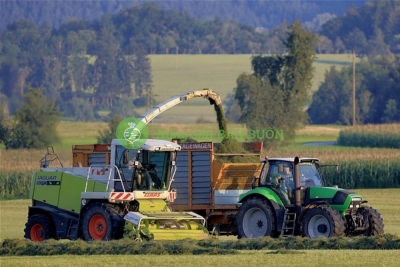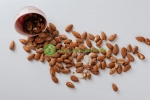Vietnam’s Agricultural Exports in 2025: Products Gaining Global Momentum
24/10/2025 | Tác giả: Nongsanbanbuon.com
Vietnam’s 2025 agricultural exports continue to expand, led by coffee, cashew, seafood, and fruit. Despite price shifts in rice and cassava, value growth and sustainability efforts reinforce Vietnam’s position in global agri-food trade.
Vietnam’s Agricultural Exports in 2025: Products Gaining Global Momentum
.jpg.jpg)
Vietnam’s agricultural sector has continued to demonstrate resilience and adaptability in 2025, despite global trade uncertainties. According to the Ministry of Agriculture and Rural Development (MARD), key export commodities such as coffee, cashew, seafood, and wood products are maintaining strong performance, while others are adjusting to price and demand shifts in global markets. Below is an overview of the major trends from the first eight months of 2025.
1. Coffee: Record Growth in Export Value
Coffee remains Vietnam’s top-performing agricultural export. In the first eight months of 2025, coffee exports reached 1.2 million tons, earning US $6.42 billion—an 8.7% increase in volume and a 59.1% surge in value compared with the same period in 2024. The average export price rose to US $5,580 per ton, up 46.4%, driven by tightening global supply and strong demand for Robusta and specialty coffees.
.jpg)
2. Cashew: Stable Volume, Strong Value Growth
Cashew exports totaled 482,700 tons, worth US $3.24 billion, down slightly in volume (–1.2%) but up 16.4% in value year-on-year. The average export price climbed 17.8% to US $6,711 per ton, reflecting Vietnam’s consistent quality and improved processing standards.
3. Pepper: Lower Volume, Higher Prices
Vietnam’s pepper exports reached 165,700 tons, valued at US $1.12 billion—a 9.8% drop in volume but a 26.9% rise in value compared with 2024. The average export price increased sharply by 40.7% to US $6,740 per ton, confirming the country’s global leadership in high-quality pepper and spice exports.
4. Rice: Steady Quantity, Price Correction
Rice exports totaled 6.3 million tons, worth US $3.17 billion, up 2.2% in volume but down 17.5% in value. The average export price fell to US $505 per ton, 19.3% lower than a year earlier, due to competitive pricing pressures from regional suppliers.
5. Fruits and Vegetables: Moderate Adjustment
The total export value of fruits and vegetables reached US $4.62 billion, representing a 2.2% decrease compared to 2024. Despite this mild decline, durian, mango, and dragon fruit continue to dominate exports to China, Korea, and Japan, supported by expanding cold-chain logistics.
.jpg)
6. Cassava and Derivatives: Surging Volumes
Exports of cassava and cassava-based products reached 2.8 million tons (worth US $852 million), up 57.2% in volume and 3.6% in value. However, the average export price dropped 34.1% to US $302 per ton, reflecting global oversupply and lower starch demand in some Asian markets.
7. Seafood: Solid Growth with Sustainability Focus
Vietnam’s seafood exports reached US $7.03 billion, an 11.5% increase year-on-year. Shrimp and pangasius remain the top products, while tuna and squid exports also expanded thanks to improved traceability and certification compliance for major markets like the U.S. and EU.
.jpg)
8. Livestock Products: A Promising Export Segment
Exports of livestock and animal products totaled US $410.7 million, marking a 24.5% increase compared with 2024. The rise reflects growing demand for processed meat and dairy goods across Asian markets. Though still modest compared to seafood or coffee, this segment is gaining attention for its export potential under Vietnam’s food-safety and animal-welfare initiatives.
Outlook
Vietnam’s agricultural exports in 2025 reveal a healthy structural shift: fewer volume-driven gains but stronger value growth, improved processing standards, and a focus on quality and sustainability. As markets diversify beyond traditional partners, Vietnam’s agriculture is well-positioned for continued expansion into high-value global segments.











